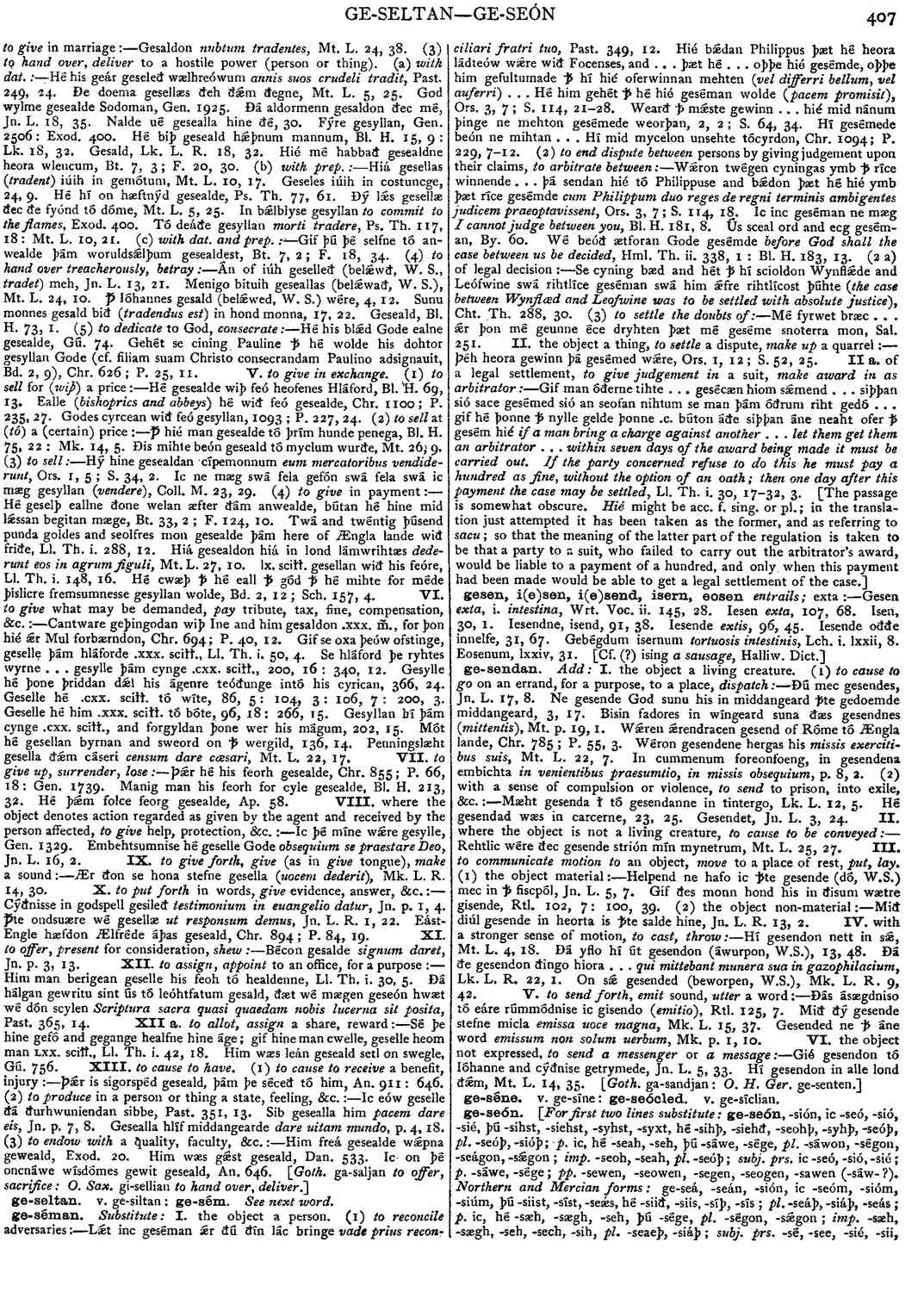ge-séman
-
Lǽt inc geséman ǽr ðú ðín lác bringe
vade prius reconciliari fratri tuo,
- Past. 349, 12.
-
Hié bǽdan Philippus þæt hé heora ládteów wǽre wið Focenses, and . . . þæt hé . . . oþþe hié gesémde, oþþe him gefultumade ꝥ hí hié oferwinnan mehten (vel differri bellum, vel auferri) . . . Hé him gehét ꝥ hé hié geséman wolde [
pacem promisit),
- Ors. 3, 7; S. 114, 21-28.
-
Wearð ꝥ mǽste gewinn . . . hié mid nánum þinge ne mehton gesémede weorþan,
- 2, 2 ; S. 64, 34.
-
Hí gesémede beón ne mihtan . . . Hí mid mycelon unsehte tócyrdon,
- Chr. 1094; P. 2 29, 7-12-
-
Wǽron twégen cyningas ymb ꝥ ríce winnende. . . þá sendan hié tó Philippuse and bǽdon þæt hé hié ymb þæt ríce gesémde cum Philippum duo reges de regni terminis ambigentes judicem praeoptavissent, Ors. 3, 7; S. 114, 18. lc inc geséman ne mæg
I cannot judge between you,
- Bl. H. 181, 8.
- Ús sceal ord and ecg geséman. By. 60.
-
Wé beóð ætforan Gode gesémde before God shall the case between us be decided, Hml. Th. ii. 338, I : Bl. H. 183, 13. (2 a) of legal decision :-- Se cyning bæd and hét ꝥ hí scioldon Wynflǽde and Leófwine swá rihtlíce geséman swá him ǽfre rihtlícost þúhte (
the case between Wynflæd and Leofwine was to be settled with absolute justice),
- Cht. Th. 288, 30.
- Mé fyrwet bræc . . . ǽr þon mé geunne éce dryhten þæt mé geséme snoterra mon. Sal. 251.
-
Þéh heora gewinn þá gesémed wǽre, Ors. l, 12 ; S. 52, 25. II a. of a legal settlement, to give judgement in a suit, make award in as arbitrator :-- Gif man óðerne tihte . . . gesécæn hiom sǽmend . . . siþþan sió sace gesémed sió an seofan nihtum se man þám óðrum riht gedó . . . gif hé þonne ꝥ nylle gelde þonne .c. búton áðe siþþan áne neaht ofer ꝥ gesém hié
if a man bring a charge against another . . . let them get them an arbitrator . . . within seven days of the award being made it must be carried out. If the party concerned refuse to do this he must pay a hundred as fine, without the option of an oath; then one day after this payment the case may be settled,
- Ll. Th. i. 30, 17-32, 3.
Bosworth, Joseph. “ge-séman.” In An Anglo-Saxon Dictionary Online, edited by Thomas Northcote Toller, Christ Sean, and Ondřej Tichy. Prague: Faculty of Arts, Charles University, 2014. https://bosworthtoller.com/49626.
Checked: 0